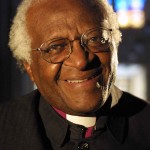Compassionate Health Care
by Christina Puchalski, MD
 I am both a professor and a practicing clinician. Six months ago, a husband and wife from Ethiopia were visiting back home. Someone broke into their Ethiopian home and attacked them with a butcher knife. They were brought to the Ethiopian hospital in critical condition. Fortunately, they did well in the hospital, then in a surgery center in Germany, and finally we brought them to the states. They are now my patients and I am happy to report that they are doing better.
I am both a professor and a practicing clinician. Six months ago, a husband and wife from Ethiopia were visiting back home. Someone broke into their Ethiopian home and attacked them with a butcher knife. They were brought to the Ethiopian hospital in critical condition. Fortunately, they did well in the hospital, then in a surgery center in Germany, and finally we brought them to the states. They are now my patients and I am happy to report that they are doing better.
Throughout the period of working with this couple, and talking to healthcare professionals from different parts of the world, I heard stories about compassion. There were reports of healthcare professionals who were deeply troubled by what had happened to my patients. I heard from my patients, “What I remember most were the tender acts of kindness—the people who held my hand as I was being stitched up and the people who expressed their concern for the suffering I was experiencing.” Just two weeks ago I commented to the wife about how her incisions were healing so beautifully and how technically savvy the medical staff were in Germany. She said, “Yes, but more importantly, they were so compassionate.”
 The Dalai Lama spoke of this when he wrote, “When people are overwhelmed by illness we must give them physical relief, but it is equally important to encourage the spirit through a constant show of love and compassion.” He goes on to say, “It is shameful how often we fail to see that what people require is human affection. Deprived of human warmth and a sense of value, other forms of healthcare treatment prove less effective. Real care to the sick does not begin with costly procedures, but with the simple gifts of affection, love, and concern.”
The Dalai Lama spoke of this when he wrote, “When people are overwhelmed by illness we must give them physical relief, but it is equally important to encourage the spirit through a constant show of love and compassion.” He goes on to say, “It is shameful how often we fail to see that what people require is human affection. Deprived of human warmth and a sense of value, other forms of healthcare treatment prove less effective. Real care to the sick does not begin with costly procedures, but with the simple gifts of affection, love, and concern.”
So what is this thing that we call compassion, and how can we bring compassion into our healthcare systems? Henri Nouwen wrote, “Compassion asks us to go where it hurts, to enter into places of pain, to share in brokenness, fear, confusion, and anguish. Compassion challenges us to cry out with those in misery, to mourn with those who are lonely, to weep with those in tears. Compassion is the full immersion in the condition of being human.”
Compassion informs the relationships with those in our care as well as with our coworkers. Dr. Bruce Rumbold, in his article Caring for the spirit: lessons from working with the dying, writes, “Compassion is the core of interdependence.” In this increasingly interdependent world, compassion is the way to bring about world peace and the way to bring about change in the true healing of people. Bruce also writes, “Our social understanding and care can no longer afford to be shaped by clinical practice that presents care as a paid activity dominated by risk-management procedures. We need to recognize that care (as both giving and receiving) is at the center of the human experience and that compassion is an ethical imperative for human societies.”
When we partner with those who are suffering, we are answering a deep sense of call, the motivation to serve others. In the United States, healthcare was largely founded by religious organizations. Altruism, compassion, and love formed the core of these missions. And, while we’ve moved very far from that, data from our work and the work of others has shown that this call to serve others is crucial. When healthcare professionals do not practice under this sense of call, they burn out, move away, become distant, and lose their ability to care. They suffer, and consequently, so do their patients.
 Some of the work that we’ve been doing at GWish (George Washington Institute for Spiritual & Health) includes examining how we bring compassion into education and link it to our practice. We look at spirituality as a root of compassion, which we term “compassion and spirituality in action.” On a national basis, we have developed a consensus model, “Inter-Professional Spiritual Care,” with the goal of bringing compassion in healthcare to others. Our spiritual care models are based on honor and dignity, contributing to justice, and promoting compassion. We are now offering in hospital settings around the country (and hopefully in other areas soon) specific tools for compassion training in clinical practices. Essential to our model is what we call “transformative interaction.” Medical students in eight of our pilot programs will participate in reflective rounds. In their third year, these students will examine their own call to serve and the personal transformative nature of a healing encounter.
Some of the work that we’ve been doing at GWish (George Washington Institute for Spiritual & Health) includes examining how we bring compassion into education and link it to our practice. We look at spirituality as a root of compassion, which we term “compassion and spirituality in action.” On a national basis, we have developed a consensus model, “Inter-Professional Spiritual Care,” with the goal of bringing compassion in healthcare to others. Our spiritual care models are based on honor and dignity, contributing to justice, and promoting compassion. We are now offering in hospital settings around the country (and hopefully in other areas soon) specific tools for compassion training in clinical practices. Essential to our model is what we call “transformative interaction.” Medical students in eight of our pilot programs will participate in reflective rounds. In their third year, these students will examine their own call to serve and the personal transformative nature of a healing encounter.
 Desmond Tutu wrote: “A person is a person through another person. My humanity is bound up inextricably with yours.” Our humanity here in this room, and the work that we do in countless societies, are bound together. The glue that holds us together is compassion, love, and a powerful passion to try to make a difference in other people’s lives. That’s what our work is about. In conclusion, I would agree with Bruce Rumbold—that compassion is an ethical and moral imperative and something that should form the roots of all healthcare systems and their policies.
Desmond Tutu wrote: “A person is a person through another person. My humanity is bound up inextricably with yours.” Our humanity here in this room, and the work that we do in countless societies, are bound together. The glue that holds us together is compassion, love, and a powerful passion to try to make a difference in other people’s lives. That’s what our work is about. In conclusion, I would agree with Bruce Rumbold—that compassion is an ethical and moral imperative and something that should form the roots of all healthcare systems and their policies.
Thank you.
(This talk was given at the The Impact of Compassion in Global Health and Tropical Medicine, ASTMH Symposium in Philadelphia, December, 2011.)
Christina Puchalski, M.D., MS, is the Executive Director of the George Washington Institute for Spirituality and Health, Washington, DC, and a Professor of Medicine and Health Sciences at The George Washington University School of Medicine, where she has pioneered novel and effective educational and clinical strategies to address the spiritual concerns common in patients facing illness. She has received numerous awards including the Healthcare Foundation of New Jersey’s Faculty Humanism in Medicine Award. Dr. Puchalski is on the editorial board of several Palliative Care journals and chair or coauthor of several major conferences and initiatives in spirituality and health. She co-leads an annual retreat for healthcare professionals; she also works with medical student education focused on how to support their call to a profession of service and compassion. Dr. Puchalski has been principle investigator or co-principle investigator in several research projects in spirituality including evaluation of a spiritual assessment tool she developed which is currently used widely in a variety of clinical settings; an NIH funded study on spirituality and will to live in HIV-AIDS patients; and an innovative study to integrate spirituality into healthcare settings called INSPIR. She has authored numerous chapters in books and edited and authored a book published by Oxford University Press entitled Time for Listening and Caring: Spirituality and the Care of the Seriously Ill and Dying with a forward by His Holiness, The Dalai Lama. Her many publications and presentations have urged the development of a patient-centered perspective in healthcare, with specialization in the importance of integrating spirituality and compassion into one’s professional practice. Her latest book has just been published, Making Healthcare Whole: Integrating Spirituality into Patient Care, Puchalski, CM and Ferrell, Betty Templeton Press 2010. It is based on the work she did to develop national guidelines on inter-professional spiritual care.
